My family celebrates a traditional Thanksgiving: We go to my sister’s house, run out of things to talk about in about 30 minutes, and then watch TV so that we don’t have to talk to each other. I just wish my grandparents were still alive so that I could ignore them while watching Evan Almighty!
Over the years, the small moments that happen every Thanksgiving have come to mean more to me than turkey, pumpkin pie, or the people who gave me life. Below are the five Thanksgiving traditions that I cherish most.
Looking at the poor fuckers in front of the Macy’s Thanksgiving Day Parade floats — who traveled thousands of miles to dress up like a teddy bear or a gingerbread man or some shit and have it broadcast on national TV — and thinking “What’s up with those people?”
I’m both a liberal and a narcissist, so I truly don’t care what other people do. I have no judgment whatsoever for a grown man who chooses to dress like SpongeBob SquarePants and walk down the busiest street in America. But I do have endless curiosity about that person. Personally, I would find that march to be substantially more humiliating than Cersei Lannister’s walk of atonement in Game of Thrones. But people do it on purpose! They travel thousands of miles to do it! And they get up early on Thanksgiving to do it! While most of us are wearing comfy socks and sipping coffee in our toasty-warm houses, these folks are braving Northeast weather in a threadbare Oompa Loompa outfit while some C-minus pop star lip synchs “Holly Jolly Christmas” on top of the Pizza Paradise Float sponsored by Domino’s.
One might assume that the people in the costumes work for whoever sponsored the float and got strong-armed into marching, perhaps in exchange for the benefit of the doubt in a really borderline #MeToo case. But no! NBC always takes pains to point out that the people are volunteers who traveled at their own expense! Do you know what a hotel room goes for in Manhattan on Thanksgiving weekend? $200 will get you a room where they don’t even pretend to not film you while you’re on the toilet. That’s just one of the costs people bear in exchange for an experience that most people would consider to be the most humiliating of their lives. Some advice for NBC: Skip the interview with Katherine McPhee and interview the thoracic surgeon dressed as a Minion so that we can figure out what makes him tick.
Remembering the time that I saw KISS at the Thanksgiving Parade on what must have been the Youth Is Fleeting, Time’s March Is Relentless, And All That Ye Possess Shall One Day Turn To Ash Float sponsored by Bagel Bites.
I saw the Macy’s parade in person when I lived in New York because the route was two blocks from my apartment, which was the exact distance I was willing to walk. My most vivid memory is the time that the four members of KISS — the most dangerous rock band of the ‘70s — puttered by me on a float looking fully aware of what their presence in the parade signified.
Recall that in the ‘70s, KISS was seen as outrageous and occult. They inspired protests from religious groups and extreme devotion from their fans; they were to the ‘70s what Marilyn Manson was to the ‘90s. But on Thanksgiving Day 2014, the band — who were in their 60s by that point — slowly rolled by me in between a Pikachu balloon and a marching band from Sandusky, Ohio. They looked uncomfortable; they didn’t seem to know whether or not they should wave to the crowd. After all: KISS is supposed to be a drug-fueled tornado of power chords and fucking that tears through the countryside leaving a path of wrecked hotel rooms and impregnated Denny’s waitresses in their wake. Does that tornado wave to three year-old parade-goers? The unmissable reality was that I was looking at four AARP members dressed as spooky mimes who were trying to be metal while volunteers dressed like chocolate chip cookies danced in front of them. I briefly locked eyes with Paul Stanley, and I swear that he telepathically said to me: “Cherish your youth, sonny.”
Quoting Best In Show during the Westminster Dog Show until everyone wants to punch me in the mouth.
I don’t know much about dogs, so my main contribution to the dialogue during the Westminster Dog Show is to quote the 2000 Christopher Guest film Best In Show until my family hates me even more than usual. Best In Show has a Fred Willard quote for any dog show occasion. When they show the trophy, I say “I’ve taken a sponge bath in bowls smaller than that!” When they mention obedience, I say “I went to one of those obedience places once — it was all going well until they spilled hot candle wax on my privates!” Of course, the big challenge is choosing the perfect moment to say “To think: In some countries these dogs are eaten.” One year I said it when my mother-in-law was in the kitchen, so I had to say it again when she came back in the room.
Nobody enjoys this but me. But who gives a shit? Only about 12 funny movies have ever been made, and Best in Show is funny enough to count as two of them, so I re-live it every Thanksgiving, relatives be damned. I can’t wait until my son is old enough to be annoyed when I yell “We have so much in common — we both love soup!” Even though that line comes from part of the movie that has nothing to do with dog shows.
Wondering how the Detroit Lions have managed to be bad every year of my life even though the NFL has competitive balance rules that are downright Mario Kart-esque. (ED NOTE: This column was written in 2023)
Professional football — the most American of sports — has rules that make North Korea seem like an Ayn Rand fever dream. Spending is capped. Revenue is shared. Player movement is restricted. And the draft gives the highest picks to the worst teams. With all due respect to Kevin Costner’s character in Draft Day, a medium-intelligent border collie could probably run an NFL team and get them to the playoffs one year out of three.
And yet, the Detroit Lions — one of the two teams that play every Thanksgiving — have been bad for seemingly my entire life. Hard numbers back up this intuition: The Lions are locked in a virtual tie with the Cleveland Browns for the worst record since 1980, and have managed to win only one lonely playoff game while I’ve been alive! I’m 43! The Lions have achieved this feat in a league that hands out the equivalent of blue shells and Bullet Bills to teams that lag behind, while good teams have to make do with borderline-useless green shells and bananas.
It looks like I’ll have to skip this tradition this year, because against all odds, the Lions are 8-2 and in first place in the NFC North. Good for them! And sure, they’re doing it against the likes of the Vikings and Bears, two teams that seem to be in a Brewster’s Millions-esqe quest to see how much money they can burn. But still! I’ll be cheering for the Lions against the Packers, and they’ll either win and prove that even the most hopeless among us can turn over a new leaf, or they’ll get crushed by five touchdowns and I’ll get to partake in my traditional befuddlement about the Detroit Lions after all.
Thinking about how dickless the end of It’s a Wonderful Life is.
My grandma loved It’s a Wonderful Life because it had the two things that she liked in a movie: No swearing and no sex. It became a Thanksgiving staple in my family because it was often the only movie left standing after Grandma vetoed un-American trash like Home Alone and The Princess Bride.
I honestly like It’s a Wonderful Life. It’s a curio from a time before movies relied on gimmicks like special effects, action, tight editing, or having interesting things happen. The film focuses on George Bailey, a habitual do-gooder whose dreams of adventure and fortune are perpetually dashed by the deadbeat losers in his home town. When a botched bank transaction drives George to financial ruin, an angel appears to show George that — though his bank account may be empty — he’s rich in family and friends. The message is that real wealth comes from the relationships we build with the people around us.
Or, at least: That’s almost the message. After his encounter with the angel, George gleefully runs through his beloved home town to his humble home and hugs his adoring family. He’s a rich man…in a way. But the film doesn’t end there. In the final scene, the townspeople — plus George’s big-shot brother and rich school chum — show up and provide money to cover George’s debts and then some. George isn’t just rich in spirit — he’s now rich in US currency! You know: The real kind of rich!
My grandma has passed away, so I’m free to say: What the fucking fuck, It’s a Wonderful Life? You spent two hours selling me on this quasi-Marxist conception of “rich” that’s not about money, and then with your final breath, you say “Oh, and P.S.: George Bailey also ended up with a fuckton of money.” Did the studio do that? Did someone from RKO tell Frank Capra “Look, this whole thing about money not being important is going to get us hauled before the House Un-American Activities Committee. How about instead of the movie ending with George being rich in friends, he ends up being actually rich? As in: Rich in the way we hope to be if this movie succeeds because it has an ending that people recognize as happy.” And hence the final scene, in which George literally rejoices in front of a huge pile of money.
Happy Thanksgiving, everyone!




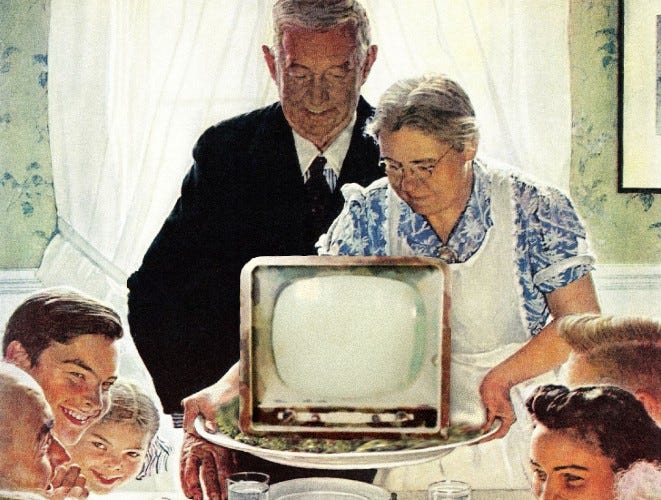


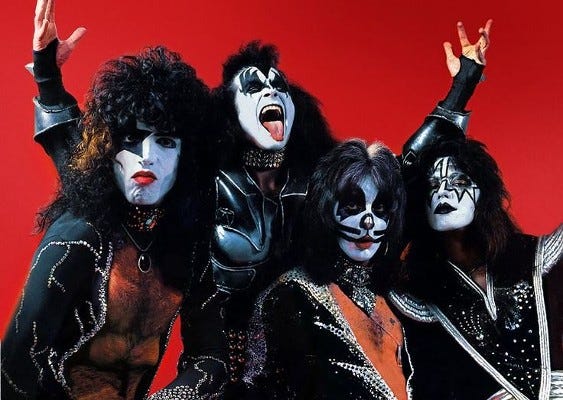
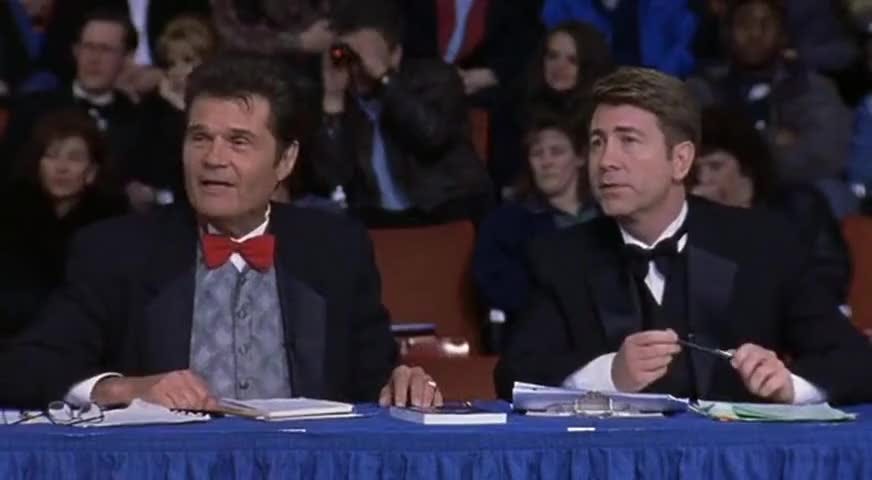
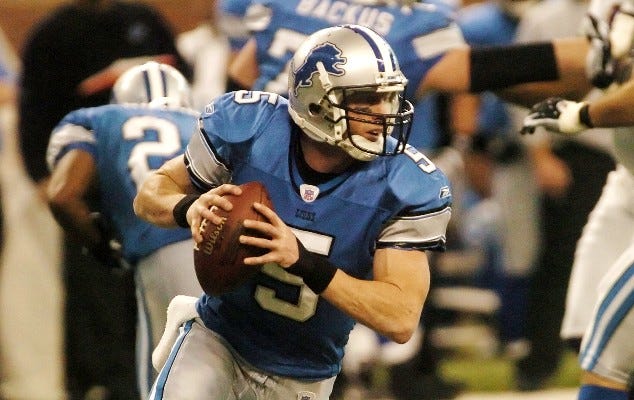
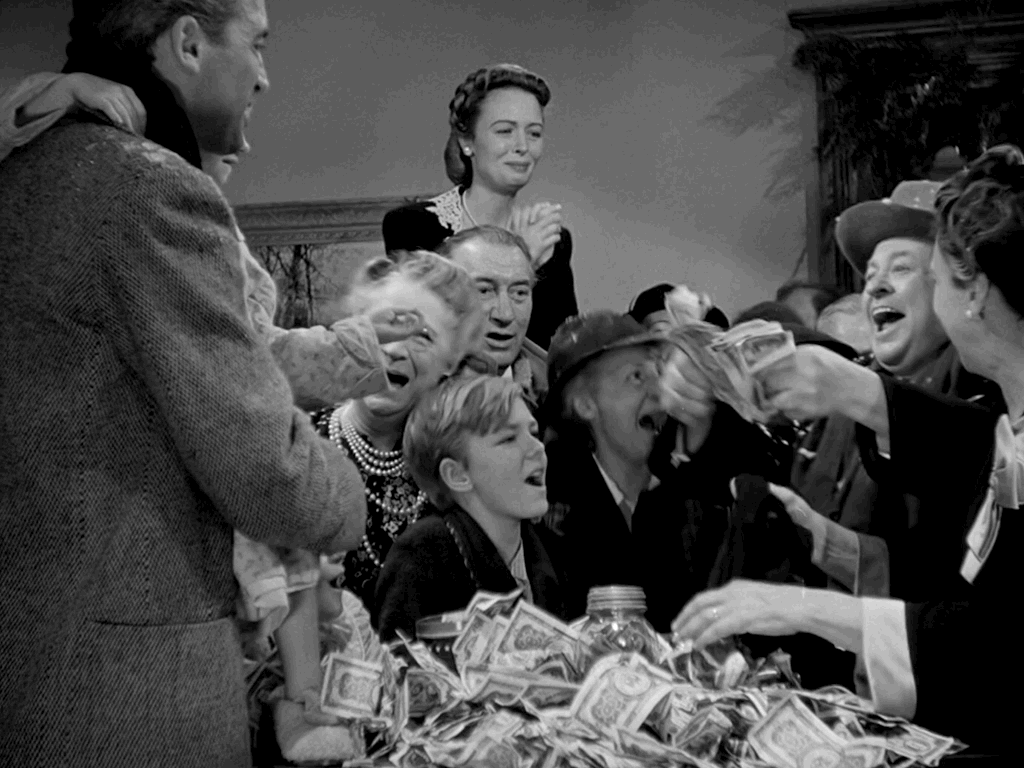
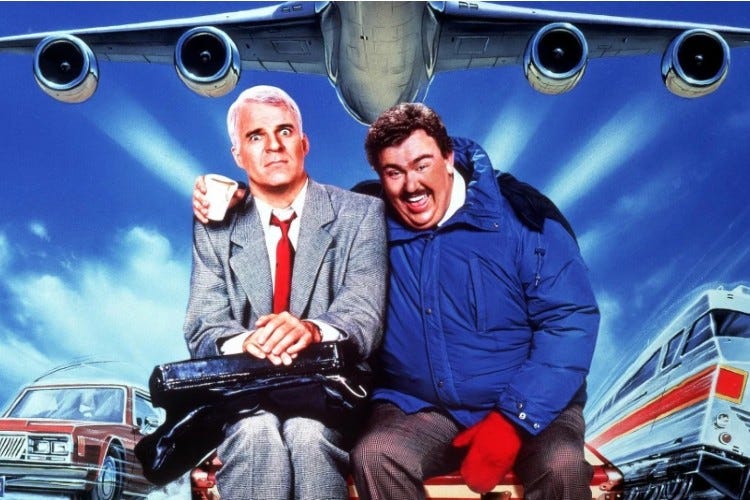
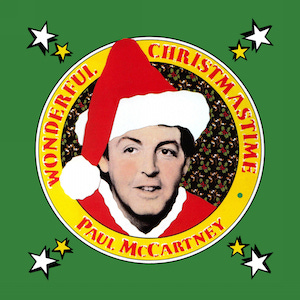
*George* doesn’t become rich - the money saves the Building & Loan and prevents anyone going to prison… and it happens due to collectivism, as everyone comes together to help, validating his goodness throughout the film.
We all have the occasional blind spot, so let me help you with this one: George is 𝘯𝘰𝘵 𝘨𝘰𝘪𝘯𝘨 𝘵𝘰 𝘬𝘦𝘦𝘱 𝘢𝘭𝘭 𝘵𝘩𝘢𝘵 𝘮𝘰𝘯𝘦𝘺. He needed enough to cover an unexpected debt, and now he has enough 𝘰𝘧𝘧𝘦𝘳𝘴 to do that several times over -- but he'll take only what he needs and (if the rest of the film is anything to go by) insist on paying it back as soon as possible.